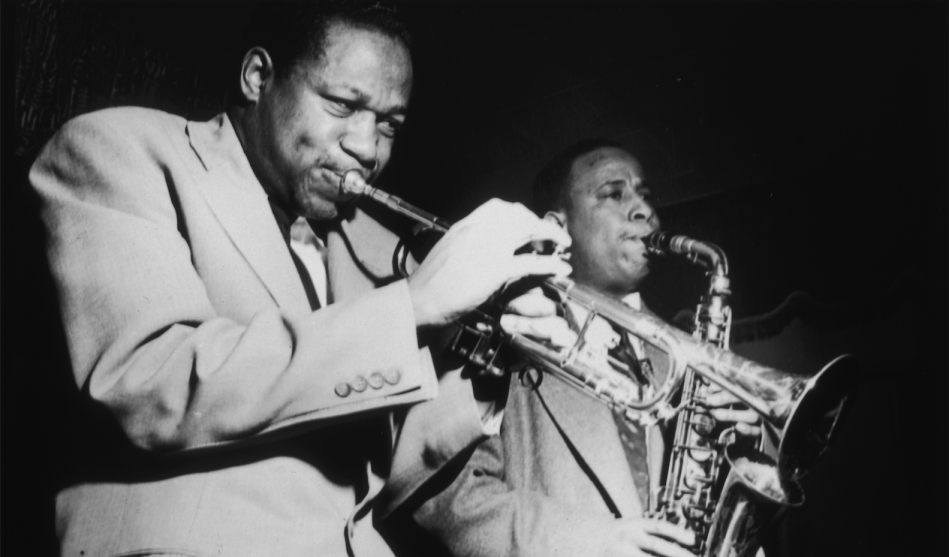
Trumpeter Clifford Brown and saxophonist Lou Donaldson in 1955Metronome/Getty
It’s hard to believe that Clifford Brown lived just 25 years. In his short run, he remade American music more times, and more lastingly, than almost all trumpeters of any genre or generation, and he made possible the hard-bop legacies of Lee Morgan and Freddie Hubbard. Before his fatal car crash in 1956, Brown was in another car accident that sidelined him for a year, injuring his shoulder but not dampening his music. Dizzy Gillespie visited him in the hospital to encourage his recovery. “He had it all,” Sonny Rollins said.
Today would’ve been Brown’s 90th birthday. The Clifford Brown Jazz Festival is expanding online from his birthplace of Delaware. His only known footage is a two-song appearance on a variety show hosted by Soupy Sales. Brown blazed the registers with ripping speed, textural bite, and arpeggiated flourishes, but he never felt the need to substitute virtuosity for voice. He could say more in three notes than many could in 30. His quintet with Max Roach ended with the highway crash that killed Brown, pianist Richie Powell, and Powell’s wife, Nancy, who lost control of the wheel while they slept between gigs. Hours earlier, Brown had played his final note at a Philadelphia jam session.
“There may be no sadder tale in modern music than that of Clifford Brown,” the Washington Post lamented, but alongside his loss runs a story of growth and recovery. By 1955 he’d become the most celebrated young player in jazz, equaling or topping Miles Davis. “When he was killed, there was an uncommon rush of sentiment in the jazz world,” Whitney Balliett wrote. “The tenor saxophonist and composer Benny Golson wrote a resonant dirge-ballad called ‘I Remember Clifford.’”
Today is the Friday before Election Day. It’s also Halloween eve. The world is madness. Take three songs and call me in the morning at recharge@motherjones.com: “I Don’t Stand a Ghost of a Chance With You,” “Joy Spring,” and “Daahoud,” lined up here.
















